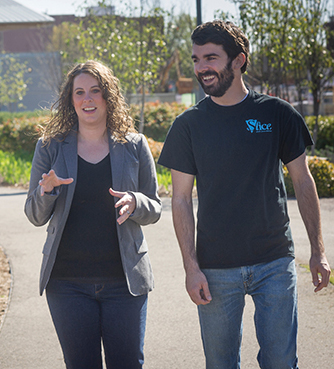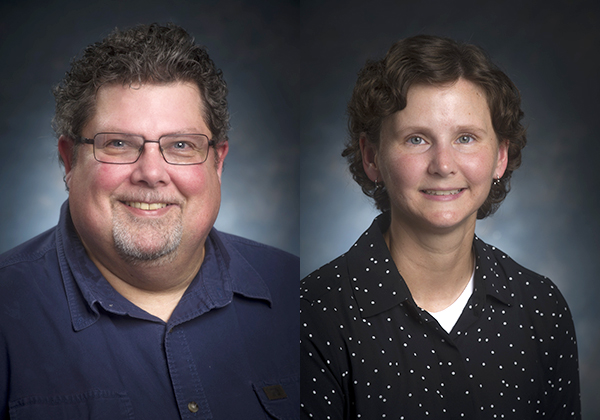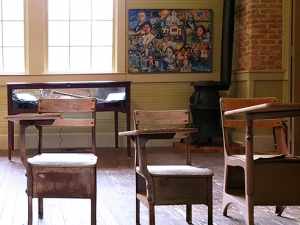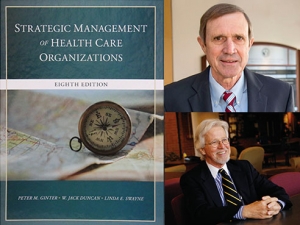 Basic writing scholars have long debated whether or not remedial composition courses are the best way to teach and encourage freshman who are not prepared to succeed in traditional first-year English courses, said Assistant Professor of English Chris Minnix, Ph.D.
Basic writing scholars have long debated whether or not remedial composition courses are the best way to teach and encourage freshman who are not prepared to succeed in traditional first-year English courses, said Assistant Professor of English Chris Minnix, Ph.D.
Students may feel stigmatized for reasons that may not be their fault. Many in UAB’s remedial freshman composition courses, for example, come from high schools where writing skills were not stressed.
“Oftentimes students come from schools where they have had fewer opportunities to develop as writers,” said Minnix, who directs the Freshman Composition and Developmental Studies program. “They may be incredibly intelligent but haven’t come out of the type of school that would foster that intelligence.”
|
“Confidence is such an immense part of writing. That moment where a student feels like they are empowered, that they can write, that makes all of the difference.” |
A fresh design
The new course structure in the developmental writing courses, EH 106 and 107, is based on a studio model and eventually will replace EH 091, the current remedial freshman composition course.
In the former, students attend classes during the week with their course instructor and earn three hours of course credit; most remedial courses, such as the latter, are for institutional credit only and do not count toward a degree.
 University Writing Center Director Jaci Wells with UAB graduate Jay HaywoodThe courses include writing studios, much like a lab component of a science course, in which students meet weekly with their instructor to work on their writing assignments. Students also are required to attend the University Writing Center (UWC), located on the first floor of Mervyn Sterne Library, to work with tutors throughout the semester and get additional feedback on their writing. For them, EH 106/107 replace the traditional freshman composition courses EH 101/102.
University Writing Center Director Jaci Wells with UAB graduate Jay HaywoodThe courses include writing studios, much like a lab component of a science course, in which students meet weekly with their instructor to work on their writing assignments. Students also are required to attend the University Writing Center (UWC), located on the first floor of Mervyn Sterne Library, to work with tutors throughout the semester and get additional feedback on their writing. For them, EH 106/107 replace the traditional freshman composition courses EH 101/102.
“It slows the curriculum down and gives the instructor more time to mentor students through the writing process,” Minnix said. “It creates a space where students are able to ask questions about a piece of writing.”
Jaci Wells, Ph.D., director of the UWC and assistant professor of English, said that she has seen a change in the ways these students approach the UWC.“I’ve noticed in this change to the new model that [students in EH 106 and 107] have a better attitude toward the Writing Center,” she said. “It doesn’t feel like punishment — just that they’re in a class that provides more writing instruction and support than other classes, and they are trying to set you up to be successful in writing.”
“The goal is to get the students in the habit of using the Writing Center,” which is available to all UAB students, not just those in the developmental writing program, Wells said.
Visible results
 Ron Guthrie, an instructor in the English department, and Melba Major, assistant professor of English
Ron Guthrie, an instructor in the English department, and Melba Major, assistant professor of English
The English instructors who piloted EH 106/107 report promising changes in the way students respond to the demands of the courses.
Melba Major, assistant professor of English, said that when she taught EH 091, she spent a great deal of energy in the first few weeks trying to engage and motivate the students, many of whom did not want to be there.
All that changed, however, when she explained the studio-model premise to the students enrolled in the new EH 106/107 courses.
“During the first week, as we went over the syllabus and I explained the rationale for the new sequence, students were thrilled,” Major said. “Instead of being angry and disappointed about being in a remedial course, they were saying things like, ‘I know I need extra help, and I’m so glad this counts.’ That they began viewing the class as an opportunity instead of an extra hurdle made a huge difference because we could focus all of our energy on the important task at hand: becoming better critical readers and writers.”
Ron Guthrie, an instructor in the English department, said that the new developmental writing courses are the best program he’s seen at UAB since coming to campus in 2009. He credits the melding of the best parts of EH 091, such as longer class times and mandatory visits to the UWC, with the ability to earn course credit as a primary reason EH 106/107 was so successful in its first year.
“A lot of students that come in have the talent — they just need the guidance they may have been lacking,” Guthrie said. “I had a student come in to EH 106 who told me he’d never written an essay in high school, and he felt totally lost when he came to UAB and his professors were wanting essays. He was on the verge of just giving up, but as a class, we learned to write. He wrote good essays for me and moved on to 107.”
 Assistant Professor Chris Minnix directs the Freshman Composition and Developmental Studies program
Assistant Professor Chris Minnix directs the Freshman Composition and Developmental Studies program
A new understanding
At the beginning of both EH 091 and EH 106, students are assigned a literacy narrative, in which students are asked to tell the story of a formative experience that shaped their attitudes toward reading and writing. Some of the most amazing stories the instructors read, Minnix said, are about the ways student opinions about writing and language were best influenced outside of the classroom.
One of Minnix’s recent students was a first-generation college student who first wrote his literacy narrative as a sort of expository essay. As Minnix worked with him on the assignment, the student developed a moving story about giving a speech to his high school baseball team and the realization that writing secures things in time — things such as the end of his baseball career or his time with his teammates.
“He started thinking about what writing can do, how it enables us to hold on to those particular moments in life,” Minnix said. “His narrative ended up being beautifully written.”
|
“It doesn’t feel like punishment — just that they’re in a class that provides more writing instruction and support than other classes, and they are trying to set you up to be successful in writing.” |
Positive outcomes
That same student emailed Minnix during the summer — he’d gotten a gig writing posts and covering sports for an online sports blog. It is experiences like that, Minnix said, that demonstrate assignments such as the literacy narratives work and show new writers that, with a bit of effort and support, they can become capable and successful.
“Confidence is such an immense part of writing,” Minnix said. “That moment where a student feels like they are empowered — that they can write— makes all of the difference.”









